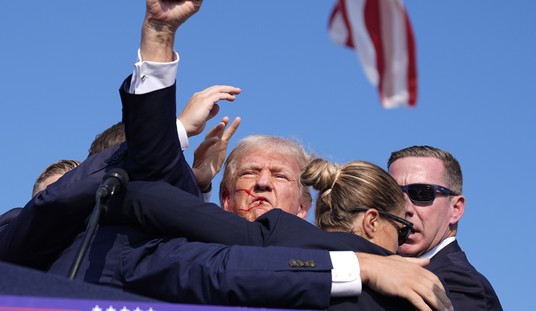A new “sex bureaucracy” is attempting a full takeover of young people’s sex lives through moral strictures that trample free speech and the due process of law. In only the most recent symptom of this disease, a court recently ruled that George Mason University wrongfully expelled a student in 2014 — for engaging in consensual sex with his girlfriend.
That student, who is anonymously referred to as “John Doe,” won a federal lawsuit against George Mason after administrators ignored evidence that he had been in a consensual relationship for over one year. After the break-up, the ex-girlfriend told school officials and police about what she considered in hindsight to be sexual assaults. This girl’s reaction follows a recent totalitarian trend on college campuses. In seeking to prevent “sexual violence,” schools have taken to regulating students’ behavior and even attitudes about sex to absurd levels.
A forthcoming paper to appear in the August issue of the California Law Review outlines “The Sex Bureaucracy,” which Harvard Law School professors Jacob Gersen and Jeannie Suk argue is thoroughly regulating “the space of sex” in America. The “bureaucracy dedicated to that regulation of sex … operates largely apart from criminal enforcement, but its actions are inseparable from criminal overtones and implications.”
The American Association of University Professors (AAUP) has also released a report on “The History, Uses, and Abuses of Title IX.” This report presents many examples of the free speech rights of professors being violated by the culture of fear that has grown out of new interpretations of Title IX.
This odd turn in regulating sex may be “counterproductive to the goal of actually addressing the harms of rape, sexual assault, and sexual harassment,” the Harvard professors warn, adding that it also deprives due process to the accused and encourages bizarre new sexual norms.
How Title IX Birthed a Monster
Title IX of the Higher Education Act, the law behind this bureaucracy, was signed by President Richard Nixon in the Education Amendments of 1972. In the days when women were denied from some colleges and universities, this was a welcome step forward. Enforcement of the law often centered on athletic programs, even into the 1990s.
Eventually, however, regulators became convinced that a school had the responsibility to correct a “hostile environment.” This allowed Title IX to stretch from determining the conduct not just of the school and its agents, but even of students themselves.
“Between 1972 and 2011, a statutory ban on discrimination was transformed into a bureaucratic structure consisting of policies, procedures, and organization forms that regulate conduct,” explain Gersen and Suk. In 2011, the Office for Civil Rights (OCR), the Title IX enforcement arm of the Department of Education, started including “sexual violence” as a form of sexual discrimination. While this change came as a non-binding suggestion in a “dear colleague letter,” the threat of lost federal funds coerced universities to comply.
Before that time, many schools handed cases of sexual violence over to the police or dealt with them internally as cases of violence, not discrimination. After OCR’s declaration, it became impossible to do so.
Since Title IX now applied to conduct between students, OCR began presenting its own definitions of sexual harassment, sexual violence and affirmative consent, and it started strong-arming schools into adopting these definitions as their own. These definitions often proved vague and confusing, covering everything from minor “unwelcome comments about appearance” to violent assault.
While “the public debate about Title IX and sexual assault on college campuses gives the impression that the target of this bureaucracy is … rape and sexual assault,” Gersen and Suk explain, the concept of sexual violence has expanded to include “unrequested conduct of a sexual nature that is regarded by someone as undesirable.”
Defending Against Thought-Crime
This broad definition of sexual violence led the OCR to encourage schools to regulate their students’ attitudes about sex, suggesting that some forms of sexual desire constitute “risk factors” for sexual violence. In this way, “the federal government requires schools to be involved in constructing sexual norms, and putting a stamp of disapproval on sexual practices like impersonal sex, pornography consumption, and sexual fantasies.”
Indeed, the totalitarian nature of these suggestions is striking. No one is considered exempt from the watchful eye of the state when it comes to sexual attitudes:
Bystander intervention programs seek to produce the sense that we are all implicated in the sexual environment and in proto-sexual interactions taking place around us. Responsibility for the potential sexual interactions surrounding us belongs to all. There are no innocent bystanders, and perhaps no fully innocent interactions, because non-problematic sexual behaviors can become problematic. We all must monitor the sexual environment to see if we can investigate and intervene. We are all part of the sex bureaucracy.
Damaging the Right to Due Process
Across the country, there are thousands of “privately administered bureaucracies mandated by the federal bureaucracy, deciding liability for sexual conduct that is called criminal but may not even be a civil wrong,” write the Harvard professors (emphasis added). With the Association of Title IX administrators at well over 1,400 members (this number is from 2014!), such “mini-bureaucracies” exert a powerful influence on the lives of college students.
Indeed, the shifting declarations of sexual violence push the bureaucracy to ever more draconian levels. “Very rapidly, the consent line shifted again in many places to make enthusiasm a requirement of consent itself–anything less than enthusiasm is sexual assault,” Suk and Gersen argue.
Institutions of higher learning are nearly requiring that anything less than a woman’s enthusiasm for sex constitute a violation of her consent. This mentality explains why John Doe’s girlfriend went to the cops, and why George Mason expelled him. It also explains why actress Lena Dunham admitted that she never considered her college sexual encounter “rape,” until long after the fact. What defense can a man have if a woman’s regret is enough to condemn him of sexual assault?
OCR can get away with creating such a climate of fear, because technically its draconian rules are mere suggestions. If the organization had gone through the normal rule-issuing process, “unfair aspects could be challenged as a violation of due process requirements of the federal Constitution or as arbitrary and capricious,” Gersen and Suk explain.
Destroying Free Speech
In a similar vein, the report from the American Association of University Professors (AAUP) lists cases where Title IX enforcement threatened free speech on college campuses. The study lists the cases of Laura Kipnis, a feminist film professor at Northwestern University, who was targeted by the school’s Title IX officers after she published an essay in The Chronicle of Higher Education.
Kipnis’ essay, entitled, “Sexual Paranoia Strikes Academe,” attacked the accusations of sexual assault against her fellow Northwestern professor, Peter Ludlow. Student activists responded by encouraging the administration to investigate Kipnis, arguing that her essay was an act of retaliation against the two students who had accused Ludlow. In other words, Kipnis’ speech had created a “hostile environment.”
The film professor responded by publishing another article, “My Title IX Inquisition,” which argued that her previous essay was not “retaliation,” but rather “intellectual disagreement.” While Kipnis was eventually exonerated, the public case had the effect of chilling the free speech of professors, who must live in fear of their students.
“Students have power over professors’ jobs,” Kipnis lamented. Her story is one of many, and illustrates the chilling nature of this sexual bureaucracy.









Join the conversation as a VIP Member